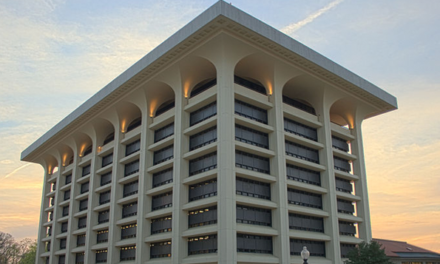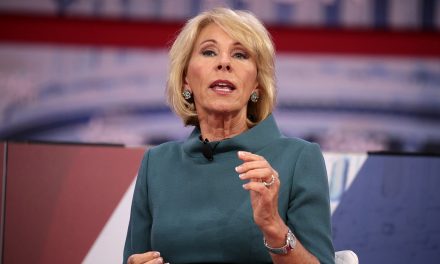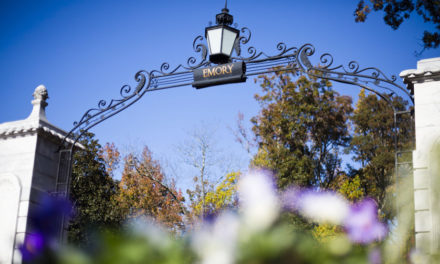After months of campaigning, advertising, and debating, the 2012 election candidates have a new hurdle to overcome before Election Day, Hurricane Sandy. While the nation awaits election results on Tuesday, Political Science professors at Emory are watching for potential effects Hurricane Sandy could have on voting.
According to a press release by Emory University on Oct. 30, the storm has already caused problems for presidential candidates. Both President Barack Obama and Gov. Mitt Romney have canceled campaign events.
Hurricane Sandy, which hit the United States on Oct. 28, has caused a path of destruction and havoc, leading to the need to rebuild the East coast. The death toll has been climbed over 110 people, according to a Nov. 3 Los Angeles Times. Many families remain without power, and gas shortages have become abundant.
Andra Gillespie, an associate professor in political science, said in the press release, that while the destruction is taking its toll, it will not change the election. Tuesday’s vote must occur, no matter the circumstance, by law.
“If there are massive power outages, given the circumstances, states will do everything they can to make sure that polling sites get their power restored first,” Gillespie said in the press release. “I could see some early voting sites converting to massive election day polling places to consolidate polling locations. This will no doubt inconvenience voters and drive down turnout, but I don’t see what else could be done in such a scenario.”
Other political science professors have looked into the hurricane’s possible consequences for the election. Alan Abramowitz, an Alben W Barkley Professor, specializes in elections, public opinion, and voting behavior and uses a statistical procedure called regression analysis to predict election results since World War II.
Abramowitz agrees with Gillespie that the hurricane may be an inconvenience for voters; however, he feels that the long-term results will not be influenced.
“We really don’t know yet. We don’t know things like how much difficulty people in the affected areas are going to have voting, how many precincts are going to have power,” Abramowitz said. “Hopefully people will still be able to vote. It may be more inconvenient, but it probably won’t affect the outcome of the election. First of all, the number of people who will be affected is going to be a very small percentage of the entire electorate, but also the two states that are most impacted are New Jersey and New York, and they’re both very strongly democratic states.”
While the idea Hurricane Sandy may not have a large impact on the ability of citizens to vote may seem reassuring, some students disagree with Abramowitz. Many students at Emory found voting this year to be more stressful because of Sandy.
College Sophomore Anna Milgramm said she has felt extremely frustrated throughout her voting process. Milgramm, who is originally from Hewlett, N.Y., was unable to get in touch with her districts election office, which was closed throughout the storms aftermath.
“I was really worried,” said Milgramm. “My absentee ballot did not arrive in the mail long after I ordered it. I called my county’s board of elections to make sure they received my request, but they closed due to the hurricane.”
Some states have changed voting requirements for early voting and absentee ballots. For example, New York has extended its acceptance for absentee ballots from seven days to 13 days after Election Day.
While this decision may help alleviate some of the pressure Hurricane Sandy has caused, Abramowitz said that he does not feel it will change any outcomes. He feels that New York is one of the strongest democratic states. While he said that 40 years ago it was a swing state, this year just as in the past elections, polls show Obama leading Romney by a very large margin in New York.
According to Abramowitz, the only influence Sandy could have on New York voters are in terms of more local races, or congressional elections, and the overall sentiment toward President Obama.
“I think the storm has actually in some ways been an opportunity for the president to act in a way that’s a very unifying way to show him responding to a crisis,” Abramowitz said. “That could actually help him particularly with the praise that he receives from the governor of New Jersey who is a prominent Republican, so that could be a plus.”
Gillespie also said that the way officials handled the hurricane could hurt or help President Obama at the polls. She said in the press release, that if he “botches the handling of this disaster, it will also cost him at the polls.”
Despite the way the Obama administration handles the reconstruction of the coast, Abramowitz feels that, in reality, we are too close to Election Day for it to help or hurt the campaigning. He also feels that very few people hit by the storm remain undecided.
The overall sentiment for the election according to both Abramowitz and Gillespie is that the ultimate winner will not change. There is also a hope that Hurricane Sandy’s affect on voters on a more individualistic level is minimal.
“We just have to hope that it doesn’t affect the ability of people to vote. We’ll just have to wait and see what happens, next Tuesday,” Abramowitz said. “The power is coming back on gradually but undoubtedly there are still going to be some areas that don’t have power and where transportation may be difficult. So there is always the potential that some people could be affected by that and we’ll just hope that it is a few as possible.”
– By Wendy Becker
The Emory Wheel was founded in 1919 and is currently the only independent, student-run newspaper of Emory University. The Wheel publishes weekly on Wednesdays during the academic year, except during University holidays and scheduled publication intermissions.
The Wheel is financially and editorially independent from the University. All of its content is generated by the Wheel’s more than 100 student staff members and contributing writers, and its printing costs are covered by profits from self-generated advertising sales.





